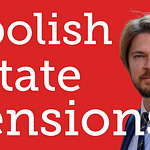In this Institute of Economic Affairs podcast, Director of Communications Callum Price is joined by Editorial Director Kristian Niemietz and Managing Editor Daniel Freeman for a wide-ranging discussion on Britain's current challenges. The conversation covers the heated debate around Fraser Nelson's controversial Times article on crime statistics, examining why public perception of rising crime clashes with data showing overall decreases, and the role of social media and visible crimes like shoplifting in shaping these perceptions.
The discussion moves to economic policy constraints, analysing Stephen Bush's Financial Times piece on the post-Truss fallout and Britain's relationship with OBR forecasts. Niemietz and Freeman examine whether the UK has become too slavish to independent economic projections and how the obsession with "progressive" tax policies creates dangerous distortions in the system. They debate the Resolution Foundation mindset that every policy must benefit lower earners more than higher earners, even when this creates cliff edges and economic inefficiencies.
The podcast concludes with a critical examination of Britain's deteriorating free speech landscape, triggered by the US State Department's human rights report citing the UK for restrictions on expression. From the Online Safety Act to 12,000 annual arrests for online speech, the hosts discuss how well-meaning legislation has created a self-reinforcing spiral of censorship. They argue that without principled defence of free speech from political leaders, Britain risks sliding further into authoritarianism through the accumulation of seemingly reasonable individual restrictions.
Fraser Nelson’s Times article can be found here.
Stephen Bush’s FT article can be found here.
Read more about the US State Department’s human rights report here.











